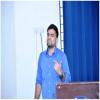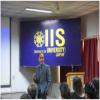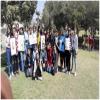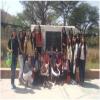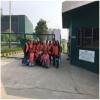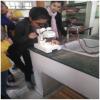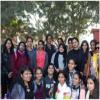Guest Lecture
SPEAKER: Mr. Avinash Dhar, Program Manager, Bionivid Technology Pvt. Ltd. 4th Cross 4C-209, Kasturi Nagar, Bangalore-560043, INDIA,
Topic: “Impact of genomics on everyday life”
Date: 4th February, 2020
Time: 12.30 PM
Venue: Ojas Hall
A Guest Lecture on “Impact of genomics on everyday life” was delivered by Mr. Avinash Dhar, Program Manager, Bionivid Technology Pvt. Ltd. 4th Cross 4C-209, Kasturi Nagar, Bangalore-560043, INDIA under Genomic awareness program for research scholars, post graduate and undergraduate students. He talked about Hands on training on RNA Sequence Analytics using OPEN SOURCE tools and commands (Raw data QC, Alignment/Assembly, Annotation, Differential Expression Analysis and Significant Biological Interpretations. He talked about bottleneck in this field. Since genomics is a data driven domain, more the data being generated, more is the manpower required to analyze the data. Close to 40 exabytes of the sequencing data is expected to be generated peryear by 2025. The lack of skilled manpower is proving out to be a big bottleneck in this opportunity abundant domain.
This lecture surely will help students in deep Understanding of Functional Genomics. It will also aid to the students and scientists who are planning to work on Next Generation Sequencing Based research projects using RNA-Seq, ChIp- Seq, DNA-Seq, Amplicon Seq,etc.


